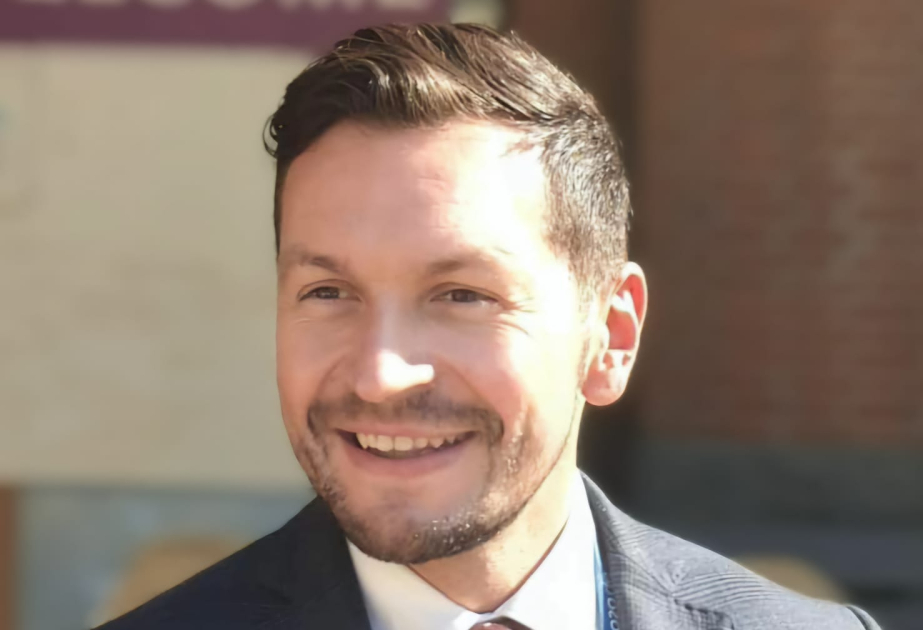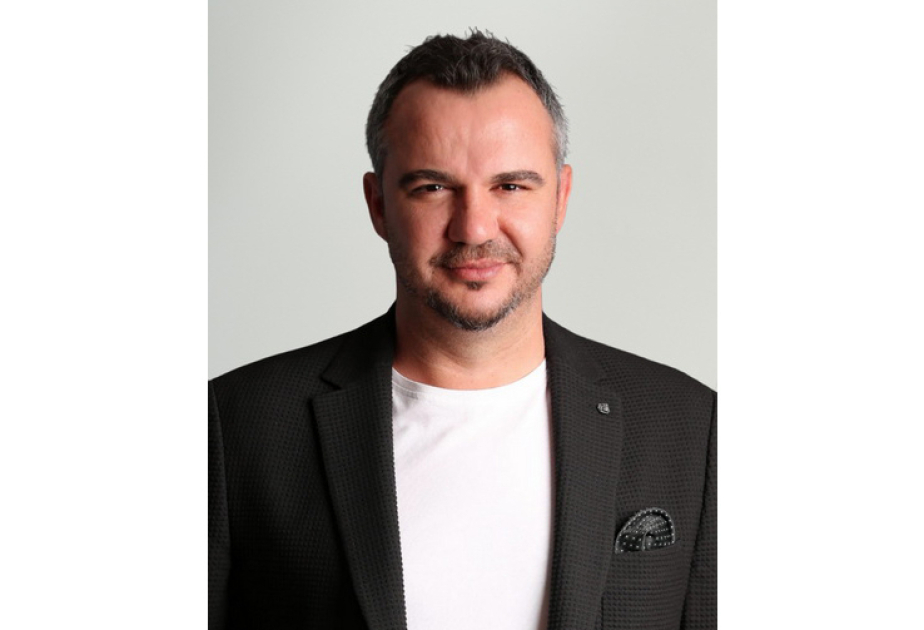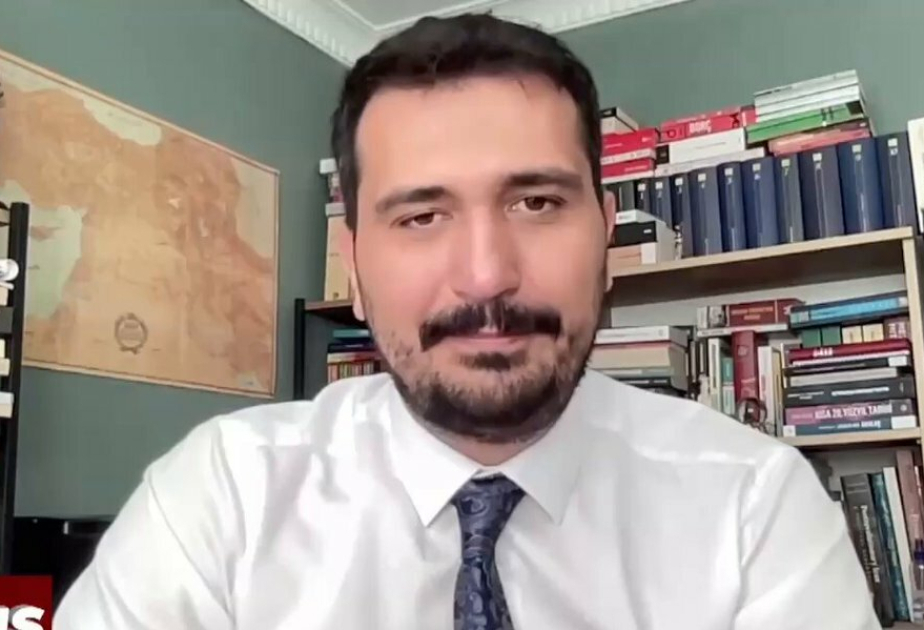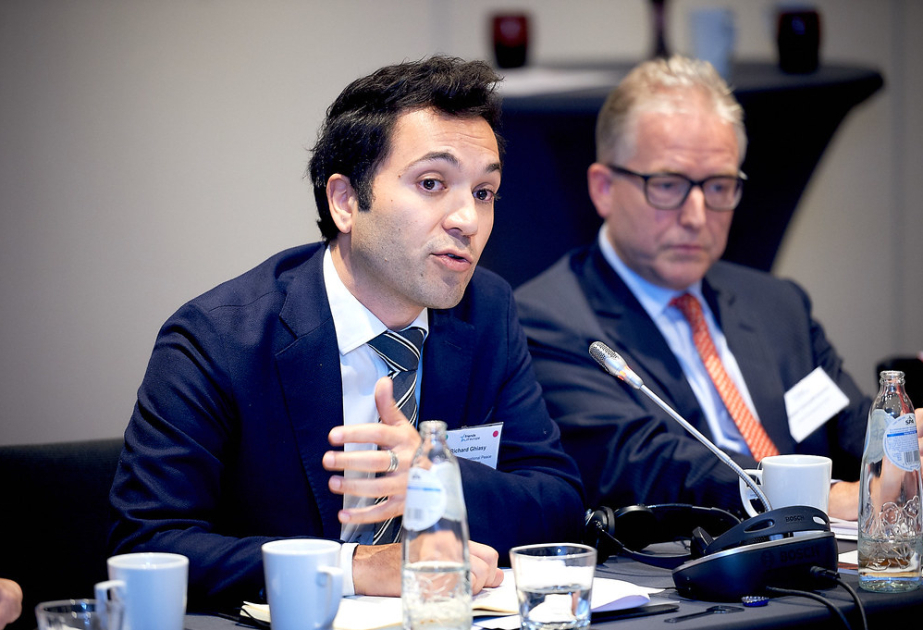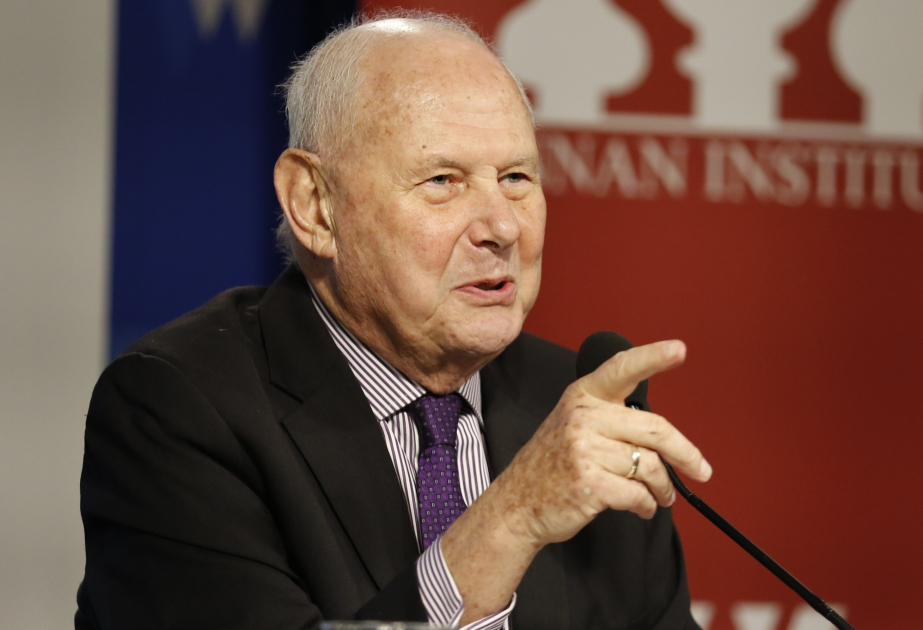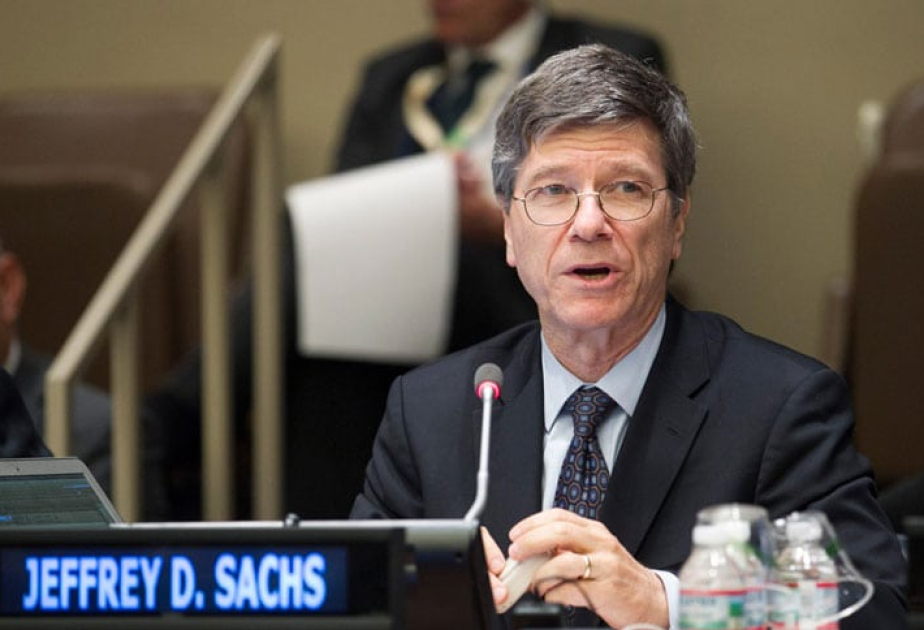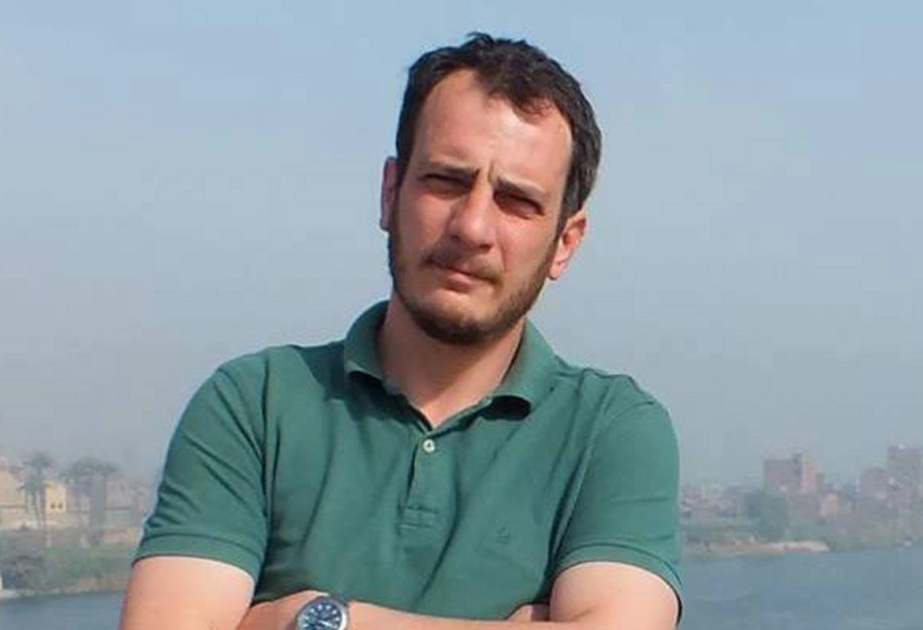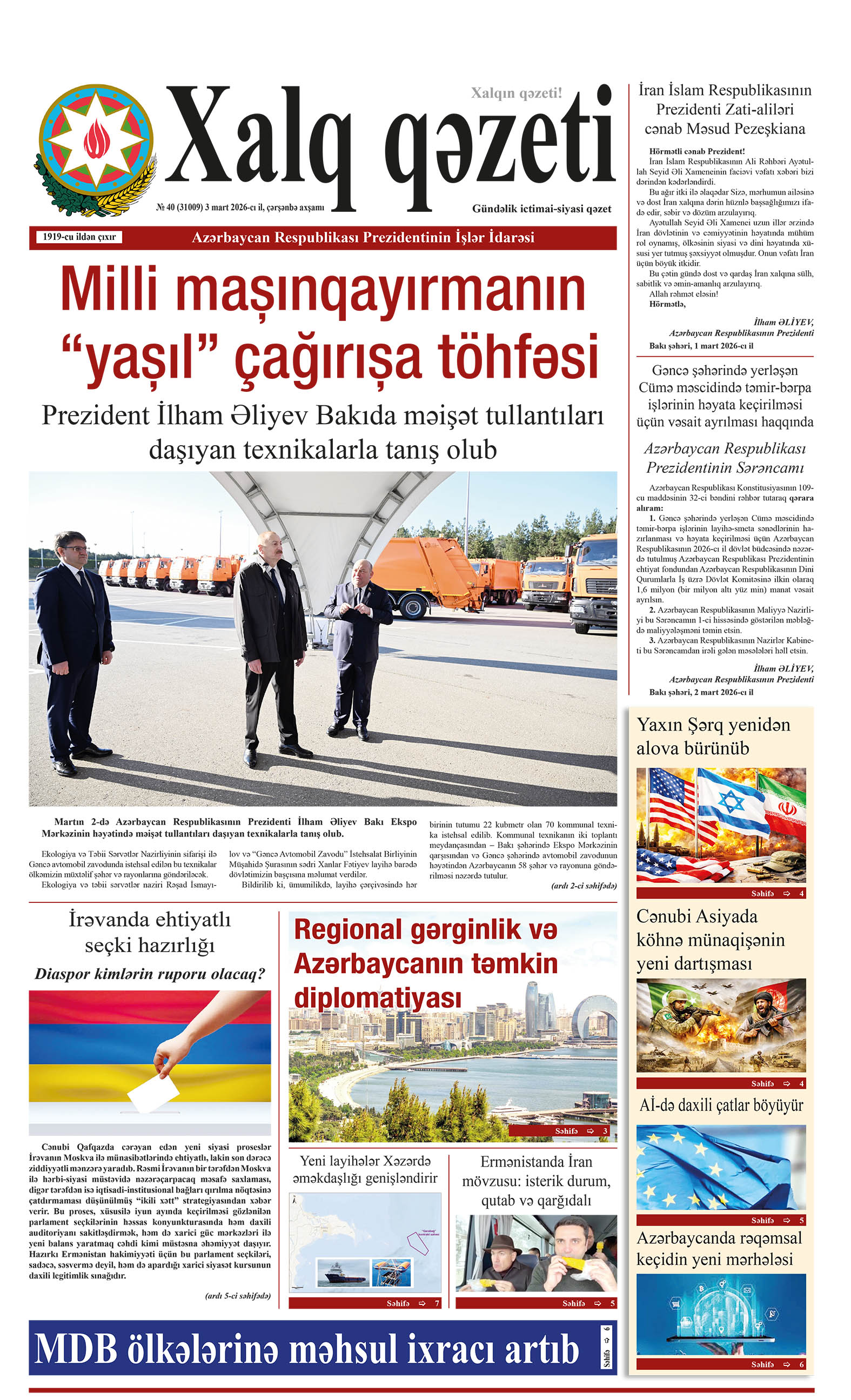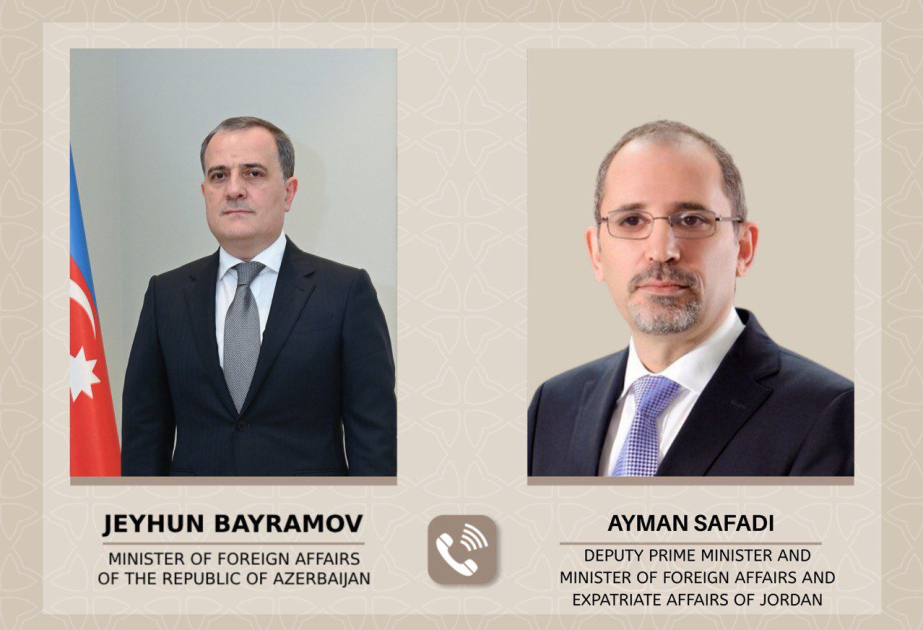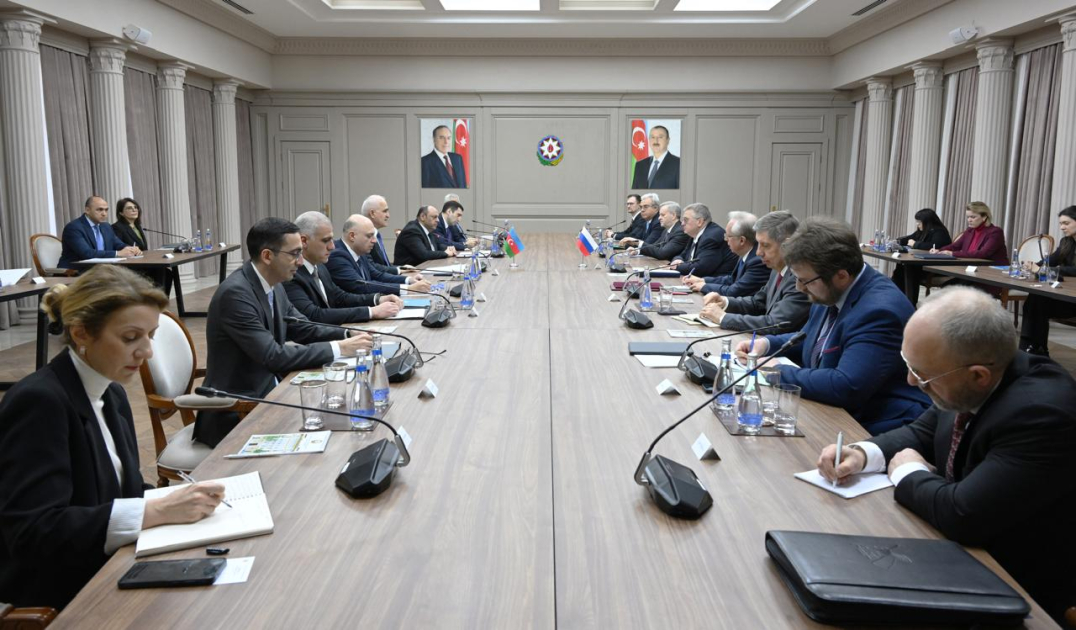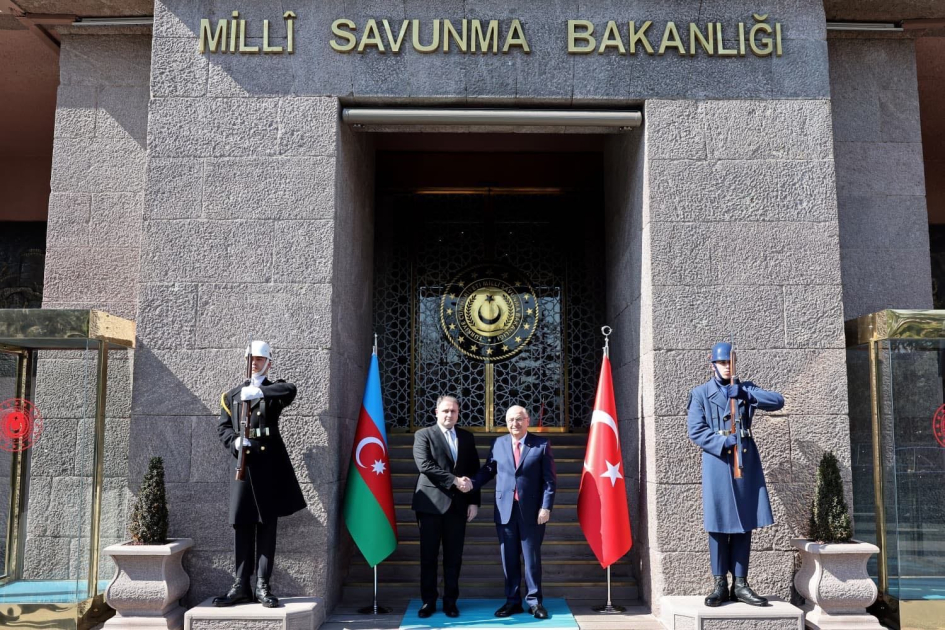Interview of Orkhan Amashov, political analyst and expert of "Сaliber.az" website, with Paul Goble, former special adviser of the US State Department.
Orkhan Amashov: - Hello! The Azerbaijan-Armenia peace process has been suspended: Now Baku is increasingly disappointed with the mediation of the West, and Yerevan does not want to participate in the discussions on the Moscow platform. At a time when the conflict between the West and Russia is in the South Caucasus, some experts claim that direct bilateral negotiations between the parties is the best and optimal solution. Of course, this is easier said than done. My guest today is Paul Goble, a former adviser to the US State Department.
Nice to see you, how are you?
Paul Goble: - Well, thank you!
- We haven't met for a long time. I remember well my last interview with you in June 2022. Of course, the local conditions at that time were fundamentally different from today. Now a lot has changed. The main change is that on September 20, Azerbaijan restored its sovereignty over the remaining territories of Karabakh. Two years before 2025, in 2023, could you see that the Azerbaijani side would take such decisive measures?
- If we take into account the disproportion between the powers of Azerbaijan on the one hand and Armenia on the other, this possibility has always been there. Later there were more opportunities. It seems that the world community has concluded from Russia-Ukraine relations and the situation in the Middle East that the use of force is perfectly acceptable. This was probably because if Russia had not intervened in Ukraine or if the war had not flared up in the Middle East, Baku would have found it difficult to take steps that could be met with less criticism. I have talked about this a lot and written that if Armenia does not make serious concessions, Azerbaijan will eventually win only because of the disproportion of forces. So I wasn't surprised when it happened. Considering the fact that Armenia did not want to take any steps and Armenia lost support at the international level, it was clear that Azerbaijan would do it. President Aliyev used them.
- Do you agree with the claim that the Karabakh issue has been resolved as of November 2023? Of course, there remains the issue of the return of the Karabakh Armenians and pressure on Azerbaijan from the West. But basically the issue has been resolved. Do you agree with this idea?
- No, the issue is not even in words. Consider that 100,000 Armenians left Karabakh for Armenia and other countries, and before that 700,000 Azerbaijanis were forced to flee from there and now want to return. It will cast a shadow on the future. I think we are talking about the end of only one important phase of the conflict here. All these difficulties were related to the institution called "Artsakh", which was established in the territory of Azerbaijan 30 years ago, and these difficulties will remain with us for a long time. The people who suffered losses on both sides, their relatives, are simply not going to put up with it. I don't think that we are talking about a new military conflict or the restoration of territories controlled by Armenians in the territory of Azerbaijan. If all this means the end of the Karabakh conflict, then we can say that yes, we have achieved it. No, if someone says that all issues related to the Karabakh conflict are over, that is not true. I have said many times that the Karabakh conflict was a part of the big problem related to the settlement of peoples and territories in the South Caucasus. One of the unresolved problems is the issue of the Zangezur corridor.
- We will talk about this later...
- I think all this is related to the Karabakh crisis. This is a larger area than the territory of "Artsakh".
- That is, you say that one phase of the conflict has ended and a new one will begin soon. In the early 1990s, to be more precise, in January 1992 - immediately after you resigned from the position of the special adviser of the US State Department on Soviet nationalities, you presented to the State Department three options for the solution of the Karabakh issue. Firstly, the removal of Armenians from Karabakh, secondly, the construction of a large wall between Armenia and Azerbaijan to stop the fighting between the two states, and thirdly, the transfer of Karabakh to Armenia. Then, for various reasons, you said that it was impossible to implement these options, and you refused them. Later, you proposed some plan - Gobl's plan - to exchange Karabakh with Zangezur. That is, they should give Zangezur to Azerbaijan, and Karabakh to Armenia. Of course, changing the territory is unacceptable now, because Azerbaijan already has full control over Karabakh. In all your plans, the existence of Karabakh Armenians under the jurisdiction of Azerbaijan in those years was equal to zero. Have you changed your mind about it?
- This happened 30 years ago. Also, this was written for the then state secretary who was scheduled to come to Karabakh at that time. Americans like to solve all problems. If you tell them there's a problem, their first question is: How can we solve it? Therefore, I tried to present possible solutions. I always knew it would be very difficult to solve. In the late 1980s and early 1990s, I did not think that Azerbaijanis could accept a large population of Armenia in their territory, Karabakh. It is quite normal that trust issues could arise, they could have, and Armenians could have left the territories. I was trying to suggest and implement the following: if you want to justify your opinion that in 1991-1992 many people wanted to make Karabakh an Armenian territory or under the control of Armenia, then you should know that the only way to achieve what Armenia wants was to make an offer to Azerbaijan that he always wanted - to give the Zangezur corridor between the "mainland" of Azerbaijan and Nakhchivan. It was written about this less than two weeks after the collapse of the USSR, at that time it was a period of unreal changes. If the Armenians wanted Karabakh to be recognized as an enclave of Armenia or to be part of and controlled by Armenia, then Iravan should have offered Baku that it always wanted. I think in 1992 it would have been very difficult to find a more correct approach. I wrote about this in that essay, but most people only read the last two paragraphs.
- This was an essay consisting of 3,300 words.
- The reality is that over time, Azerbaijan, which has large oil and gas reserves, will gradually become stronger, while Armenia, which does not have developed industry and natural resources, will become weaker. In the 90s, this approach was the only means for Armenia to maintain its stability and its position in Karabakh. Because then Azerbaijan would not remain in its position and in the future would take such measures that the ethnic Armenians would leave the region themselves, which would lead to the destruction of the Armenian institutions in Karabakh, and at some point in the future, Azerbaijan could open Zangezur by force. Armenia would not be able to do anything against it. Due to the fact that there was no territorial change in 1992-1993, we are now in such a situation that Azerbaijan is able to have everything, and Armenia is facing the risk of losing everything.
I am one of those people who applauded President Aliyev for not taking Stepanakert (Khankendi) and not taking full advantage of the 44-day war. Of course, Azerbaijan could do it, it did not expel the Armenians itself. This brought confidence to Azerbaijan as a self-sustaining power. This was welcome. But now Azerbaijan did it and took Stepanakert (Khankendi). This led to the mass flow of 100,000 Armenians from the region. Now the question is: What will Zangezur corridor be like? What route do you have? I understand that my 1992 idea is now overshadowed by new events, but the logic reflected in the events of 1992-1993 remains plausible, but unacceptable.
If Armenia does not make serious concessions, it will eventually become more isolated. All these negotiations about the route that will pass through Iran and not through Sunik province of Armenia will put Armenia in a more difficult situation. See the whole history here. I do not deny what I wrote. I just think that after 30 years this plan is no longer appropriate.
- The official position of Azerbaijan is that it has never called for the departure of Karabakh Armenians. On the contrary, he called them to stay and declared that they can return. You voiced a narrative, which has become very popular in the West and is accepted by Armenia wholeheartedly, that after regaining its sovereignty over the Karabakh region, Azerbaijan intends to take over the territories called Sunik by Armenians and Zangezur by Azerbaijanis. This is a very popular story. Do you think that the essence of this narrative is related to the intentions of Azerbaijan or to Russia? Because it is obvious that even if the West wants to support Armenia, according to the legend, Azerbaijan will do it with the help of Turkey and Russia's inaction. Who do you think this story refers to - Azerbaijan or Russia?
- Everything that is happening is related to how Moscow acts. It's all about the conflict between Russia and the West after its invasion of Ukraine. This is clear. The question is, which route should be opened in the South Caucasus? The tripartite statement in November 2020 was just a statement, not an agreement. If it were to be implemented, Armenia would benefit greatly: its transport situation would improve. If the route passes through Iran, given its close relations with Russia, especially its close cooperation with Turkey and the West, Armenia's readiness to cooperate with the West means that Tehran and Moscow may challenge Azerbaijan's use of the West-East route in overt or covert coordination. . Armenia will also lose a lot, because it will not be able to get the necessary route to connect with Russia. This will probably lead to the fact that Armenia will move further away from Moscow, and France's influence on it will increase.
I cannot say that the Karabakh crisis has been resolved, because I see other possibilities for the continuation of this conflict in the future. Maybe they won't call it the Karabakh conflict, but the fact is that the geopolitical situation in the South Caucasus determines Russia's behavior during the Soviet era and even before that. So it will be with us for a long time.
- The famous "Goble plan" has gained a unique life. The initial idea included an exchange, but later, during the Armenia-Azerbaijan negotiations, we observed some manifestations and reincarnation of this plan in various aspects. For example, in 2021, Azerbaijan put forward the idea of the same mode of operation of Lachin and Zangezur corridors. There I saw some elements of the "Goble plan" and very interesting things are happening right now. Azerbaijan states that Karabakh Armenians can return, but they must accept Azerbaijani citizenship. There is also the idea of Western Azerbaijan, which envisages the voluntary and dignified return of Azerbaijanis expelled from the territory of modern Armenia in the late 1980s. Therefore, the issues of Zangezur and Karabakh are connected. Have you seen the same phenomenon?
- Of course, the logic of "Goble's plan" can be applied to this. But I think that this is part of the deep territorial and demographic structure of the South Caucasus. We witnessed the settlement of peoples and territories in the South Caucasus. Now Azerbaijan, Armenia and Georgia are much more monoethnic than in the Soviet era. It's the birth rate, the departure of minorities, and so on. conditioned by We have also seen Moscow attempt to redefine borders, albeit temporarily, in South Ossetia and Abkhazia, for example. Armenia tried to do it with the help of "Artsakh". These are the geopolitical differences that Moscow made during the Soviet era. It should not be surprising.
Remember that if you do something, the other party will do something in return, that's how negotiations usually go. If people were to apply the "Goble's plan" as a geopolitical model to solve all problems - although they may do so now - but the author of the plan would not. One of the important events that has not been talked about happened in 1991. Then we saw how these countries were restructured along ethnic lines. Except for Russia, every post-Soviet republic has become more ethnically ethnic than it was in 1991. In the post-Soviet era, we were waiting for such a settlement, but it has not yet ended, ethnic disputes continue. Many of them failed to attract international attention, for example, Tajikistan, Kyrgyzstan and Uzbekistan, Uzbekistan has the issue of Karakalpakstan, etc.
Russia is interested in all events happening in the South Caucasus. You can even add Russia's aggression to Ukraine here, because consider Moscow's approach to the history of Eastern Ukraine - Russians live there, so it is Russian territory. We are witnessing a geopolitical trend that is spreading everywhere. And what we see in the South Caucasus is not a unique experience, but only a subset. I will say something else about it, although it is not very similar.
After the victory of Armenia in 1992-1993, hundreds of thousands of Azerbaijanis left their homes. I visited the refugee camps around Baku in the late 90s. No country, no government can refuse to see so many refugees and their return must be ensured. One of the things that is not given enough attention is that people who have been uprooted from their land have been living in refugee camps for more than 25 years and will want to return to their natural habitats. If the government of Azerbaijan can implement this, then it will determine the future of the country.
- How do you know, do you think that Azerbaijan's taking the Iranian route instead of the Zangezur corridor is a type of tactic that causes mutual relations in Armenia? Zangezur corridor is very important for Baku, we understand that. After all, this is the main route connecting Azerbaijan with Nakhchivan. The route through Iran is an alternative. My question is this: do you consider this a tactical measure on the part of Armenia to cause reciprocity?
- I think that yes, this is a tactic with a double meaning, that is, it is designed to put pressure on Yerevan and force it to make concessions, including transport connections through Sünik - Zangezur. I think it's more a matter of tactics. I do not believe that any Azerbaijani considers it acceptable that the Zangezur Corridor remains part of Armenia. I think they believe that Azerbaijan should include it in its composition. In Azerbaijan, even in power, there are those who say that Armenia is not a part of Turko-Muslim civilization some time ago and raise the issue of the existence of Armenia itself. These are marginal voices, but this is the concept that Azerbaijan is an indivisible country, that it is not divided, that Azerbaijan has a direct route from Baku to Turkey through Nakhchivan. This is extremely important for the Azerbaijani thought. I think the way they talk about the alternate route through Araz is like a tactic in a way. I think that people are unlikely to move away from the concept of "Zangezur should become a part of Azerbaijan". It will become the driving force of politics. But that doesn't mean you're going to send troops there. I saw Azerbaijanis standing in line at the Iranian embassy to get visas to go to Nakhchivan through Iran. I don't think that any Azerbaijani politician wants this to continue.
Will Tehran allow visa-free travel between Azerbaijan and Nakhchivan? Allow me to say that I highly doubt it, and for good reason. Yes, it can be fixed over time. But Tehran has its own agenda and its relations with Azerbaijan and Turkey may deteriorate. This will be very risky for any party in the future. Therefore, Iran can use the route through its territory against Baku and Ankara. If he does that, the problem will not be solved. I think they understand this very well in Azerbaijan, so what they say about this route is a kind of tactic, because it does not reflect Baku's long-term goals.
- Yes, of course, Baku wants to have direct, unhindered access to Nakhchivan, but I don't think that the government will put forward any idea of extraterritoriality. If you remember, at the beginning of 2023, President Aliyev said in Germany that we want to create a border crossing point at the entrance to the Lachin road, and Armenia can also create border crossing points at both ends of the Zangezur corridor. According to my point of view, this was an indication that Azerbaijan's position has changed. First, we talked about changed extraterritoriality. Of course, the dynamics are constantly changing. Let's see what happens in the future.
I would like to ask you about the recent hearings in the US Congress. Assistant Secretary of State James O'Brien made statements that caused a clear reaction of the Ministry of Foreign Affairs of Azerbaijan. Do you think that Washington's current position in the context of the Armenian-Azerbaijani peace process is really useful? It is clear that Azerbaijan will be suspicious of the mediation of the West, especially America. We well remember that many important agreements were reached within the framework of the negotiations in Washington during the Armenian-Azerbaijani peace process. They were divided into two directions - internal dialogue with Karabakh Armenians and intergovernmental negotiations between Baku and Yerevan. At that time, at the beginning of 2023, the Brussels process was on the verge of collapse. It was then that Washington played a very important role. State Secretary Blinken organized a meeting between the heads of state of Azerbaijan and Armenia. How do you see Washington's role in the Armenian-Azerbaijani peace process in the coming months?
- I think that in the long term, the USA is a world power and will remain so. In the short term, the United States has turned its attention to other issues. But let's remember, Baku looks around and says: Moscow has made serious promises since November 2020, after signing the statement, but has not done anything. Russia's influence in the South Caucasus has weakened. I think that it is not surprising that Baku is looking at Turkey, not Moscow or Washington. I think that there is a fact that is being overlooked at the moment: when Russia organizes negotiations, it itself becomes a participant in them, and when Washington organizes negotiations, it enables these countries to talk to each other. The situation is completely different. The United States did not have a specific agenda as to how things should be resolved. Baku itself is acting as a growing regional player, while the role of international actors is weakening. I don't know if it will continue like this in the future.
But let's see what happens. Azerbaijan regained control of its territory and nothing was heard from the international community. 100 thousand Armenians left Karabakh. If there had not been a war between Russia and Ukraine or a war in the Middle East, then perhaps there would have been more expressive calls and concerns that something should be done. But now everyone has come to terms with it.
I do not believe that we are moving towards a multipolar world as Vladimir Putin thinks and says. I think the world is going to get more complicated. If we were headed for a world war, the regional powers would act alone. If Baku is disappointed with Washington, it does not mean that it will side with Moscow. I don't think so. It seems to me that Baku was disappointed with everyone and decided to act alone. However, Baku and Ankara coordinate their actions in close contact. This is clear. It was the President of Turkey who initiated the idea of a route through Araz, and Baku followed this initiative. Considering the strained relations between Turkey and Iran, this is also very interesting. Not the other way around, at least it wasn't made public. When Aliyev and Erdogan met in Nakhchivan, they spoke with one voice. I think that the situation depends very little on Washington or Moscow, rather regional powers and factors in the region play a key role. Will it always be like this? Probably not. I can't say that there will be big changes in the next few months. We will look at the dispute around the Zangezur Corridor as a regional dispute where regional players are very important. I am not sure that the French will do anything in Armenia, that they will be able to influence something. But regardless of what the Armenians and the French think, I believe that the processes will continue.





